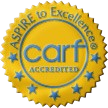Our community living services are focused on assisting individuals to live as independently as possible in their own homes and communities.
Our professional team provides comprehensive and inclusive training and personal support services to the degree required by the individual. Our clients choose where and with whom they want to live, they direct the services they receive, they decide who is a part of their circle of support, and they choose what clubs, groups or churches they join. All of our services are provided at the times and locations when our clients prefer.
Supported Living Services
In the supported living program, a client may live alone or with a roommate, neighbor, or other support person, as preferred. This roommate may share the living space, the household responsibilities, and expenses, or just be close by when needed to provide added security and companionship. The Direct Support Professionals provide training and personal support services so that the individual may live in their own apartment or house fully integrated into the community.
Traditionally, supported living services are best suited for individuals that prefer or require more comprehensive levels of regular and on-going support. The individual will learn new or improve existing skills for living in the community and receive assistance to obtain adaptive systems and equipment that make learning and living easier.
Independent Living Services
Catalysts offers assistance and training to help clients with the skills necessary to have one’s own home or apartment with minimal assistance to be as fully self-sufficient as possible. The process begins by increasing self-reliance by means of providing a balance of support, counseling, and training in the home.
In Independent Living a Direct Support Professional will come out to a client’s apartment or house usually a few hours each week as needed to help the clients be successful in maintaining their living situation.
Type of training or support services offered in both Supported and Independent Living programs:
- Housing search
- Tenant rights and responsibilities
- Money management
- Household maintenance
- Medication management
- Personal health and hygiene
- Shopping
- Medical appointments
- Meal planning and preparation
- Coordination of In-Home Support Services
- Social skill development
- Volunteer opportunities
- Safety planning and preparation
- Problem solving
- Advocacy
- Transportation training
- Parenting skills
- Mental Health symptom
Crisis Services-Rapid Emergency Services Team
Extra help is on the way.
Our Rapid Emergency Services Team (REST) located in San Joaquin and Stanislaus counties provides on-site crisis intervention and training services for individuals who are experiencing severe emotional, psychological, or traumatic crisis residing in any type of community setting. The service may also be provided in a community motel if the client has no current residence. We specialize in working with people with a wide range of behavioral challenges.
We offer intervention services for males and females of all ages including children, who may be identified as having a history of behaviors which result in the loss of living, or day program services or other disruptive episodes. The goal of REST is to assist clients and caregivers/parents in identifying target behaviors that are interfering with the client’s daily routine, and in developing a function-based treatment plan to assist in changing behaviors or teaching new skills. The length of treatment may vary based on the nature of the referral. If clients or staff needs help, they contact the person on duty and extra help is on the way.
Transportation Services-Transportation Response to Individualized Program Services
The Transportation Response to Individualized Program Services (T.R.I.P.S.) located in San Joaquin and Stanislaus counties provides transportation to individuals with developmental, physical and emotional disabilities when no other means of transportation is available. The majority of T.R.I.P.S. provided are for individuals who require extra support due to their behavioral needs or when public transportation options or routes do not meet an individual’s needs.




